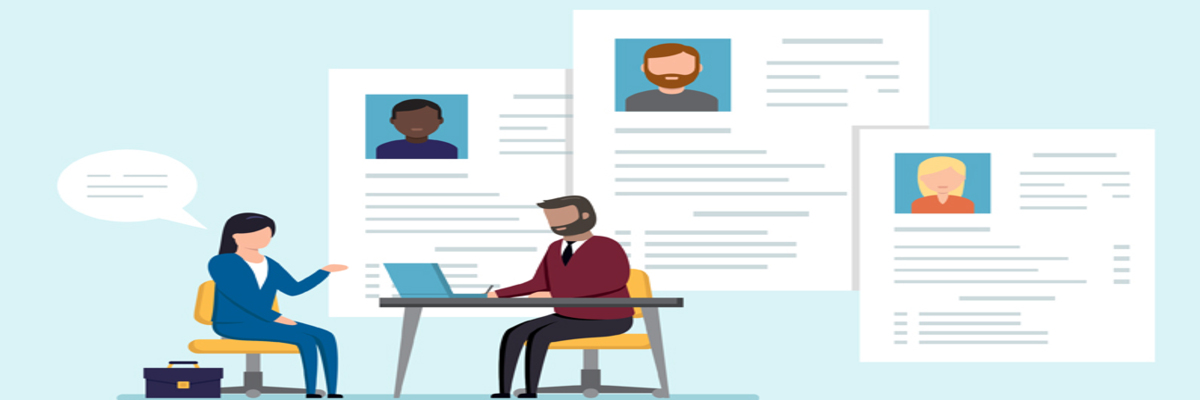Interview Tips

-
Arrive on Time, Relaxed and Prepared for the Interview: There is no excuse ever for arriving late to an interview. Short of a disaster, strive to arrive about 15 minutes before your scheduled interview to complete additional paperwork and allow yourself time to get settled. Arriving a bit early is also a chance to observe the dynamics of the workplace. The day before the interview, pack up extra copies of your resume or CV and reference list. If you have a portfolio or samples of your work, bring those along too. Finally, remember to pack several pens and a pad of paper to jot notes. Finally, as you get to the offices, shut off your cell phone. (And if you were chewing gum, get rid of it.)
-
Make Good First Impressions: A cardinal rule of interviewing is to be polite and offer warm greetings to everyone you meet from the parking attendant to the receptionist to the hiring manager. Employers often are curious how job applicants treat staff members and your job offer could easily be derailed if you’re rude or arrogant to any of the staff. When it’s time for the interview, keep in mind that first impressions the impression interviewers get in the first few seconds of meeting you can make or break an interview. Make a strong first impression by dressing well , arriving early and when greeting your interviewer, stand, smile, make eye contact, and offer a firm but not bone-crushing handshake. Remember that having a positive attitude and expressing enthusiasm for the job and employer are vital in the initial stages of the interview; studies show that hiring managers make critical decisions about job applicants in the first 20 minutes of the interview.
-
Dress Code: Students must be formally dressed whenever they participate in any interaction with a company. This office reserves the right to refuse permission to a student to attend the selection process/PPT, if they do not follow the following dress code:
- Shirt/T-shirts with collar & sleeves without any printed text.
- Trousers[full pant].
- Hair combed.
- Shirt to be tucked in.
- Salwar Kameez or Formal Trousers and Shirt for Girl Students
- Polished Sandles/Shoes
- Chappals/flip-flops NOT permitted
-
Discipline:
- Students are expected to be punctual.
- Students should maintain discipline and show ethical behavior in every action they take during the placement process. Any student found violating the discipline rules set by the company or defaming the University name, will be disallowed from the placements for the rest of the academic year.
- Students found cheating or misbehaving in the selection process (Test/GD/ Interview) will be disallowed from the placements for the rest of the academic year.
- Late comers for Aptitude Test/G.D./Interview will not be allowed to appear for the selection process.
-
Remember the Importance of Body Language: While the content of your interview responses is paramount, poor body language can be a distraction at best or a reason not to hire you at worst. Effective forms of body language include smiling, eye contact, solid posture, active listening, and nodding. Detrimental forms of body language include slouching, looking off in the distance, playing with a pen, fidgeting in a chair, brushing back your hair, touching your face, chewing gum, or mumbling. Read more about perfecting your body language in our article, The Unspoken Secrets of Job Interviewing: How Your Nonverbal Presentation and Behaviors Impact the Impression You Make.
-
Be Authentic, Upbeat, Focused, Confident, Candid, and Concise: Once the interview starts, the key to success is the quality and delivery of your responses. Your goal should always be authenticity, responding truthfully to interview questions. At the same time, your goal is to get to the next step, so you’ll want to provide focused responses that showcase your skills, experience, and fit with the job and the employer. Provide solid examples of solutions and accomplishments but keep your responses short and to the point. By preparing responses to common interview questions (see #2), you’ll ideally avoid long, rambling responses that bore interviewers. Always attempt to keep your interview responses short and to the point. Finally, no matter how much an interviewer might bait you, never badmouth a previous employer, boss, or co-worker. The interview is about you and making your case that you are the ideal candidate for the job. Read about more interview mistakes in our article, Avoid These 10 Interview Bloopers Critical Jobseeker Mistakes.
